For this report, an interview
took place with Dr. Jean-Pierre Trépanier, Director of Public
Health for the CISSS of Laval
and Dr. Olivier Haeck, microbiologist/infectious disease specialist and Officer of Prevention and Infection
Control (PCI) at the CISSS of Laval.
“We’ve started a marathon,
but we don’t know yet whether it’s going to be a triathalon or an Iron- man” – Dr. Jean-Pierre Trépanier.
At 43 years old, Dr. Trépanier has already amassed more than 20 years of experience in the health and social services sector. As the Director of Public Health for the CISSS of Laval over the past four years, his career started out amidst the H1N1 pandemic. When it comes to a public health crisis or infectious
disease outbreak, he has been around the bend! That said, COVID-19 has proved to be the biggest challenge he has encountered to date.
As for Dr. Haeck, he has worked as a microbiologist/infectious disease specialist since 2007, and as Officer
of Prevention and Infection Control (PCI) at the CISSS of Laval since 2012, a role that has taken on unprecedented proportions since the start
of the COVID-19 pandemic.
Super Virus
“We’re dealing with a super virus.
It’s extremely contagious, has a prolonged
incubation period (one to 14 days – much longer than most viral infections) and has a mortality
rate five to 10 times higher than the seasonal flu,” says Dr. Haeck. Adding to the complexity is the fact that there is no medicine
available, neither for the treatment or prevention of the disease. “Though
we had
experience with SARS in 2003 in Toronto, and a brief experience
with a Middle East Coronavirus outbreak in 2015 in South Korea, the vaccine development research wasn’t very advanced when this pandemic started,” adds Dr. Haeck. “And given that this vaccine will potentially be administered to billions
of people, we have to take the time needed to ensure that it’s effective AND safe!”
War Time Teams
For the
10 500
CISSS employees, the effort
put forth mendous. The Public
Health t comprising of about employees
and 15 doctors, a working seven
days a wee from 8 amto 8 pm, researching, analysing data and producing statistics that the entire city of Laval is eagerly
following when it comes to the number of cases
per sector. “It’s an amazing
team that’s dedicate and incredibly involved, despi the challenges.
They definit have their moments of doub uncertainty, of concerns…It’ mal—we all do!” says Dr. Trép
For the
prevention and infections
team, consistin microbiologists/infectious lists and a dozen devoted c a constant battle against an Their role; to interpret the d
Institut national de Santé publique du Québec (INSPQ) into concrete
applications on the ground in 32 establishments across the CISSS of Laval. Since March, there has been the addition
of the private
CHSLD’s, intermediate care, elderly residences and other home care resources across the territory of
Laval.
“My role is based in science and communication. I have to support and guide the advisory
board in decision-making,”
says Dr.
Haeck—
“Ça va bien aller”
Like many guardian angels, the two doctors have stopped counting the number of hours they are putting
in since the beginning of the crisis. Both are fathers and have been
working seven days a week for 12 to 14 hours per day. They are determined and dedicated, but both hope to feel the winds of change.
COVID-19…in 2020
“We call it COVID-19
because the virus was detected
in 2019, but for us, the situation started to become alarming
near the end of January,” says Dr. Trépanier. “We began the year with COVID on our radar, and it never left!” Dr. Haeck adds; “At the beginning, we had hoped that the disease would stay in China, but when we saw the situation
in Italy, we knew we would have to prepare for when it arrived here.”
At the time of writing this report, we don’t know what the future holds. They both hope that a vaccine will be discovered as soon as possible. Until then, they will continue their relentless work while thinking about all the elderly
in care homes, the courageous healthcare workers and the thousands of unemployed—everyone who is affected whether directly or indirectly.
“One
thing is clear to me, we have to remain
steadfast, because together will get out of this. Out of this crisis will come positive changes for everyone,”
says Dr. Haeck.
At The Heart of Solidarity
Everyone is saying it; one of the positive
aspects of this crisis is witnessing the population mobilize. Fondation Cité de la Santé has had a front-row seat to this phenomenon for the past 40 years. The foundation has contributed to the improvement
of care
and services offered at the hospital as well as at the other 31 establishments across the CISSS of Laval. We take care of our people. Now, more than ever.
The foundation launched a COVID-19
emergency fund from the very beginning
of the crisis, guided by three financing principles; support
for the most vulnerable population during the pandemic, purchase of essential medical equipment and support
for health care workers. Several individuals and businesses have contributed to miracles, both big and small;
1.
The acquisition of electronic
tablets for seniors
in care homes
As soon and the confinement began, the foundation purchased and distributed 31 tablets in five public CHSLD in order for seniors to communicate with their loved ones, as visits aren’t permitted. This initiative garnered merit and was then extended
to other sectors, such as the intensive
care unit at the hospital and private senior homes. A donation
from Telus of 40 additional tablets allowed many more seniors to connect
with their loved ones.
2. The purchase of entertainment kits and portable DVD players
at Centre jeunesse
Children newly admitted to the Centre jeunesse must be in confinement in their rooms for 14 days. To break the isolation and allow for some fun, the foundation purchased 12 portable
DVD players, some games
and art material.
3.
Easter chocolate
distribution at community organizations
For Easter, thanks to the contribution from Chocolats Favoris and Mondoux Confiserie, the foundation distributed more than 4000 chocolates at a dozen community organizations
across Laval who work with
women who are victims
of violence, recent immigrants or families
from vulnerable communities.
4. The acquisition of two portable ultrasound scanners at the hospital’s emergency ward
These two new portable ultrasound scanners at the emergency
ward allow for patients to receive their ultrasounds directly in the COVID-19 unit, which limits the risk of spreading
the virus and
speeds
up
procedures.
5.
Increasing recognition for health care workers
Dr. Joseph Dahine,
internist and intensive care specialist at the hospital, contacted the foundation to launch a fund dedicated
to the support of CHSLD workers. The funds raised will go to highlight and recognize these workers once the crisis has slightly
lifted and they will need extra support.
The Laval community
has also responded
to the needs by offering
its time. Sophie Bouchard, Chief of Coordination of Volunteer Resources and Spiritual Care at the CISSS de Laval has seen this firsthand. “At the pique of the
crisis, we were receiving
15-20 emails per day from volunteers who wanted to help! People are so generous, and it’s very touching
to see this,” says Bouchard.
“There are even some volunteers that I needed to slow down because they were putting their own physical or mental
health at risk, but still they wanted to do more. They are so devoted!”
At the time of this report, there are currently
150 volunteers and more than 2000 candidacies
received on Je contribue.
The Faces Behind the Battle at the CISSS of Laval
In a situation
like this, every
action counts and each person is important. From the stretcher carrier to the lab technician to the ambulance paramedic to the social worker, each of the 10 500 employees has a key role to play in our community’s
battle against this pandemic. They are ALL our guardian angels.
Jennie Laguerre, Special Educator
Jennie Laguerre has been working
with children living with an autism
spectrum disorder
at the CISSS of Laval for the past four years. Before the pandemic, she worked directly
in the homes of children under the age of five who don’t yet have their diagnosis
but have developmental delays.
By mid-April, it had already
been two weeks that her day-to-day had been turned upside
down. She now works
the night shift, for the
first time in her life, with six youth who are at the Unité Le Jardin located at 310 boul. Cartier. This new unit welcomes
youth with severe special
needs such as intellectual disabilities or autism.
“It’s
definitely very different
for me! These
youth really need a lot of stability, routine and organization so in the context of the current situation, they are quite fragile and become easily disorganized,” says Laguerre. “It’s very demanding
and you have to take it one day at a time, even one hour at a time!”
Despite all of this, how does she stay positive and keep her morale up? “You have to find ways to keep the balance
and manage stress. Music helps me a lot, as well as spirituality and reflection,” she says. “You can’t neglect your health and spirit. I call my family and friends regularly. We have to continue to live and take care of ourselves. We’ll get there, together.”
If you weren’t already a fan of Laguerre’s
devotion, you might want to know that in addition to her essential
role, she even found time to compose and record a rap song to encourage youth to “spread the message, not the virus” on YouTube. You can view it here; youtu.be/ufU6E0gbZc8
Caroline Donais, Nurse
Caroline Donais is a councillor at the Bureau de gestion
intégrée de la qualité et des risques à la Direction de la qualité, de l’évaluation, de la performance et de l’éthique (DQEPE). A nurse by profession, she has had many roles in her 19-year career before moving toward risk management.
She
never
thought
that
COVID-19 would throw her full force
into the category
of “other related
tasks”.
When several employees began testing positive
at CHSLD Ste-Dorothée, she volunteered to work as the site coordinator for the evening shift.
A Striking Experience
“I have never worked in a CHSLD in my career before this,” says Donais. “I’ve changed more diapers
in the past two weeks than in my entire life!” says the mother of three. “It has to be said. What we’re experiencing right now is completely unheard of. The CHSLD’s
were designed to be care facilities, not intensive care units! And then there’s the constant
rate of death weighing very heavily
on the staff who support
these elderly patients,
who know their habits and their families…we’re not ready to face this—no one is!”
Teamwork
At the time of this report, reinforcement has arrived
at the CHSLD. Occupational therapists, physiotherapists, doctors, special
education teachers, volunteers…And every one of them has risen to the occasion,
working in an unfamiliar environment for the most part, in a very difficult situation! “We are all links in the chain,” says Donais. “Every action counts and every
effort put forth is important.”
Cynthia Yenikomshian, Nurse
Cynthia has been a nurse at Cité-de-la-Santé Hospital for 15 years. She has worked in the mobile teams and in the overwhelmed emergency ward, where she met her husband, Jean-Sébastien Deslongchamps, who has been an orderly
beneficiary attendant for 17 years. Since the beginning of the crisis, Yenikomshian and Deslongchamps made the decision to voluntarily ‘place’ their three daughters to avoid contaminating them because they knew their workload would be intense, and they weren’t
wrong!
A Different Kind of Intervention
Yenikomshian says that the
way she has to interact with patients has changed drastically since the pandemic
started. “For example, the other day a woman
arrived who was very unwell. A few minutes
later, she was in cardiac arrest.
Normally, we would
have all run towards her to start procedures, but with COVID-19,
we have to protect ourselves; we get dressed, we put on our equipment and then we intervene,” she explains.
Contact with COVID-19 patients is already restricted to the minimum, as they are placed on stretchers surrounded by plastic
barriers in a negative pressure environment. “We’ve installed monitors, like baby monitors, and we try to talk to them that way
so we
don’t have to enter their
space as often…it’s very sad!” says Yenikomshian.
Though she has seen the impact that confinement has had on the pandemic’s
evolution, Yenikomshian is looking forward to the gradual deconfinement. She is especially looking forward to seeing her daughters
up close, and not through
a screen! It would seem that the strength and solidarity of her team is what is keeping
her afloat. “Honestly,
if we weren’t as steadfast and united, I don’t think I would make it,” she says. “But this challenge, we’re all living it together,
and that makes all the difference! There are also so many small gestures
from the community that do us good; Tim Hortons
coffee, the meals provided,
the guard of honour from the police force…We just can’t give up!”

 In The Latest Issue:Latest Issue:
In The Latest Issue:Latest Issue:
- A Bittersweet Farewell
- The new Laval Aquatic Co...
- The End of an Era:
Articles
Calendar
Virtual- ANNUAL TEACHER APPRECIATION CONTEST
- APPUI LAVAL
- ARTS & CULTURE
- CAMPS
- CAR GUIDE
- CCIL
- CENTENNIAL ACADEMY
- CHARITY FUNDRAISING
- CITYTV
- COSMODÔME
- COMMUNITY CONNECTIONS
- COVER STORY
- DINA DIMITRATOS
- ÉCOLE SUPÉRIEURE DE BALLET DU QUÉBEC
- EDITORIALS
- ÉDUCALOI
- EDUCATION
- EMPLOYMENT & ENTREPRENEURSHIP
- FÊTE DE LA FAMILLE
- FÊTE DU QUARTIER SAINT-BRUNO
- FAMILIES
- FESTIVAL LAVAL LAUGHS
- FÊTE DE QUARTIER VAL-DES-BRISES
- FINANCES
- GLI CUMBARE
- GROUPE RENO-EXPERT
- HEALTH & WELL-BEING
- 30 MINUTE HIT
- ANXIETY
- CHILDREN`S HEALTH & WELLNESS
- CLOSE AID
- DENTAL WELLNESS
- EXTREME EVOLUTION SPORTS CENTRE
- FONDATION CITÉ DE LA SANTÉ
- GENERAL
- HEARING HEALTH
- MESSAGES FROM THE HEALTH AGENCY OF CANADA
- MENTAL HEALTH
- SEXUALITY
- SOCIAL INTEGRATION
- SPECIAL NEEDS
- TEENS
- THE NUTRITION CORNER
- THE NUTRITION CORNER - RECIPES
- VACATION DESTINATION
- WOMEN'S FITNESS
- WOMEN'S HEALTH
- HILTON MONTREAL/LAVAL
- HOME & GARDEN
- INTERNATIONAL WOMEN'S DAY
- JAGUAR LAVAL
- LAVAL À VÉLO
- LAVAL FAMILIES TV SHOW
- LAVAL FAMILIES MAGAZINE CARES
- LAVAL URBAN IN NATURE
- LE PARCOURS DES HÉROS
- LES PETITS GOURMETS DANS MA COUR
- LEON'S FURNITURE
- LEONARDO DA VINCI CENTRE
- LFM PREMIERES
- LIFE BALANCE
- M.P. PROFILE
- MISS EDGAR'S AND MISS CRAMP'S SCHOOL
- MISSING CHILDREN'S NETWORK
- NETFOLIE
- NORTH STAR ACADEMY LAVAL
- OUTFRONT MEDIA
- PASSION SOCCER
- PARC DE LA RIVIÈRE-DES-MILLE-ÎLES
- PÂTISSERIE ST-MARTIN
- PIZZERIA LÌOLÀ
- PLACE BELL
- PORTRAITS OF YOUR MNA'S
- ROCKET DE LAVAL
- SACRED HEART SCHOOL
- SCOTIA BANK
- SHERATON LAVAL HOTEL
- SOCIÉTÉ ALZHEIMER LAVAL
- STATION 55
- STL
- SUBARU DE LAVAL
- TECHNOLOGY
- TEDXLAVAL
- TODAY`S LAURENTIANS AND LANAUDIÈRE
- TODAY`S LAVAL
- WARNER MUSIC
- THIS ISSUE
- MOST RECENT
Magazine
An Unprecedented Public Health Challenge
Articles ~e 105,7 Rythme FM 4 chemins Annual Teacher Appreciation Contest Appui Laval Arts & Culture Ballet Eddy Toussaint Camps THIS ISSUE MORE...
CONTESTS Enter our contests
CONTESTS Enter our contests
CALENDAR
Events & Activities
COMMUNITY Posts Events
PUBLICATIONS Our Magazine Family Resource Directory
LFM BUSINESS NETWORK Learn more
COUPONS Click to save!
COMMUNITY Posts Events
PUBLICATIONS Our Magazine Family Resource Directory
LFM BUSINESS NETWORK Learn more
COUPONS Click to save!
SUBSCRIPTIONS
Subscribe to the magazine
Un-Subscribe
E-NEWSLETTER Subscribe to our E-newsletter Un-Subscribe
WRITE FOR US Guidelines & Submissions
POLLS Vote today!
E-NEWSLETTER Subscribe to our E-newsletter Un-Subscribe
WRITE FOR US Guidelines & Submissions
POLLS Vote today!
ADVERTISERS
How to & Media guide
Pay your LFM invoice
SUGGESTIONS Reader's Survey Suggest a Listing
LFM About Us Our Mission Giving Back Contact Us
SUGGESTIONS Reader's Survey Suggest a Listing
LFM About Us Our Mission Giving Back Contact Us
 PICK-UP LOCATIONS
Get a copy of LFM!
PICK-UP LOCATIONS
Get a copy of LFM!
TERMS & CONDITIONS Privacy | Terms
ISSN (ONLINE) 2291-1677
ISSN (PRINT) 2291-1677
Website by ZENxDESIGN

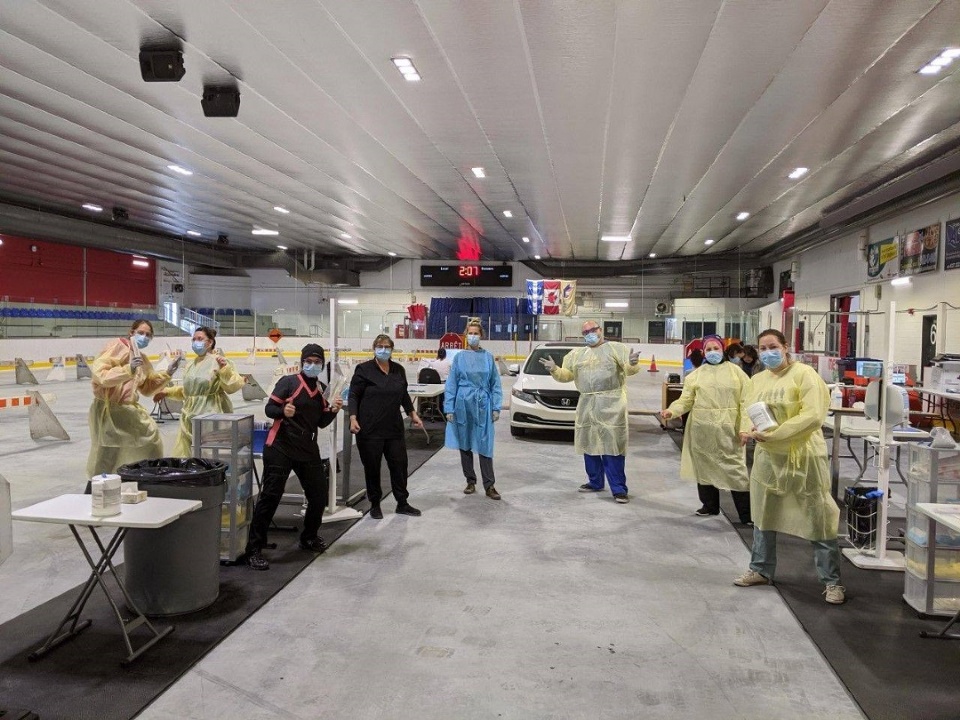
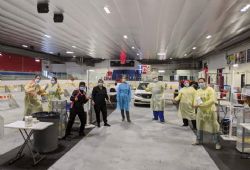
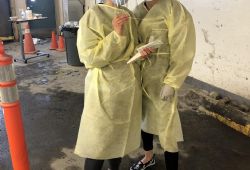
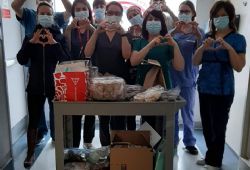
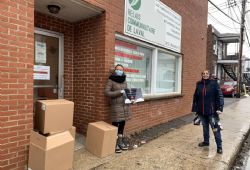
 BY:
BY: 
Tweet
Share